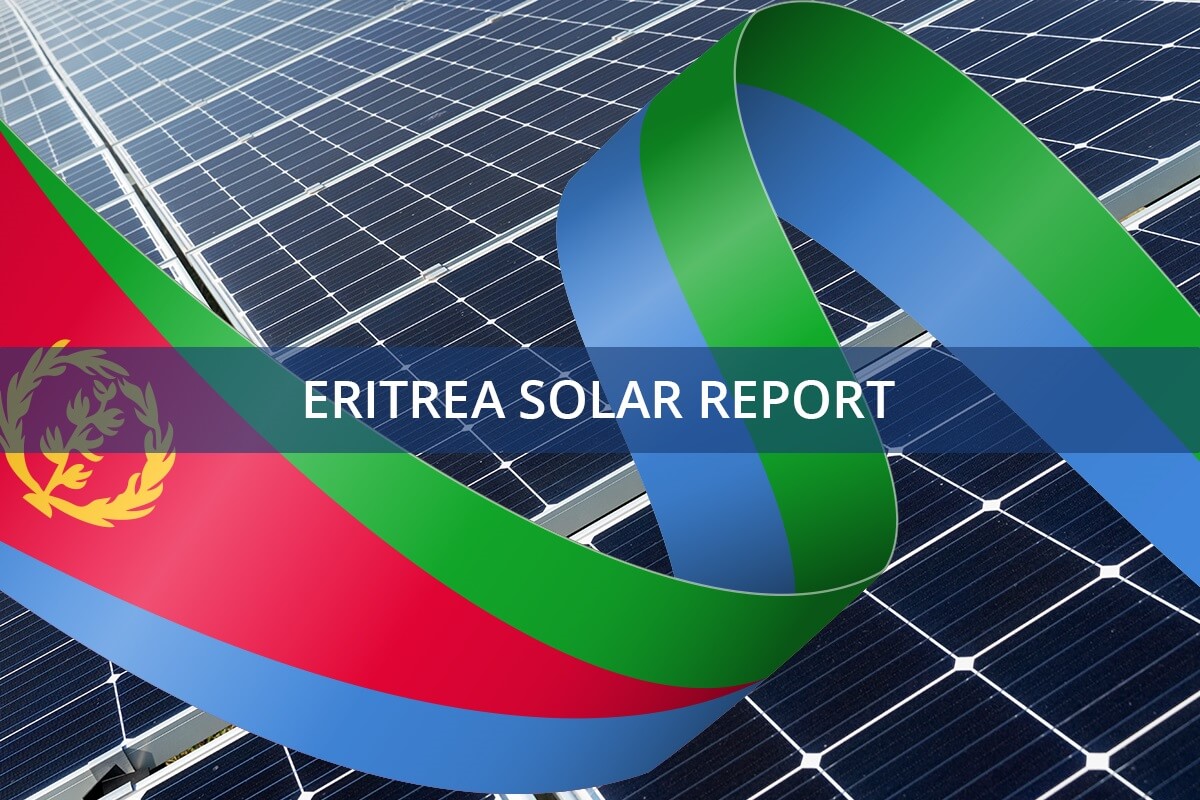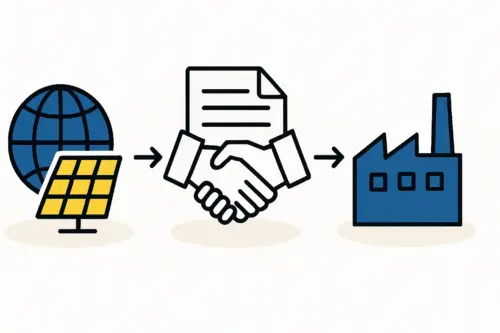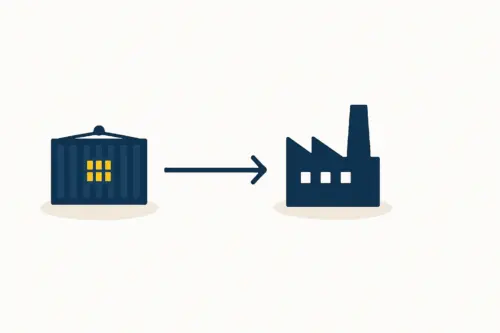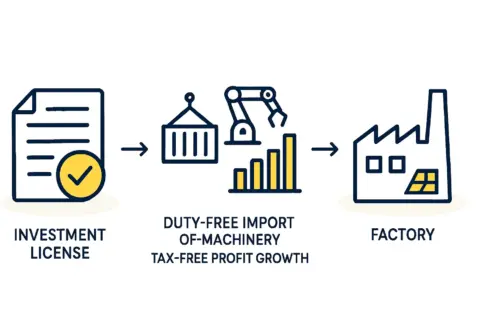Eritrea’s Solar Market: A Guide to Key Customers for Local Manufacturing
To an entrepreneur observing Eritrea’s economic landscape, the persistent hum of diesel generators is a familiar sound—one that represents a significant operational cost for businesses and a barrier to progress for rural communities. Yet, the country is also bathed in one of the world’s most abundant and untapped resources: sunshine. This disconnect between energy needs and potential presents a compelling business opportunity for those with the vision to bridge it.
With a national electrification rate of approximately 50% and rural access below 10%, the demand for reliable, decentralized power is not just a commercial opportunity; it is a national priority. For anyone considering entry into the solar sector, the question is not if there is a market, but who the primary customers are and what they require. A local solar module manufacturing facility would be uniquely positioned to serve these fundamental needs.
The Eritrean Energy Landscape: A Foundation for Opportunity
Eritrea’s current energy infrastructure relies heavily on imported fossil fuels, leaving the country vulnerable to global price fluctuations and supply chain disruptions. This dependence leads to high electricity costs and an unreliable grid, hindering economic development, particularly outside urban centers.
However, the country also has a world-class solar resource, with average daily solar irradiation levels between 5.0 and 6.5 kWh/m². This natural advantage forms the cornerstone of the government’s strategy to achieve universal electricity access by 2030, with a strong emphasis on off-grid and mini-grid solar solutions.
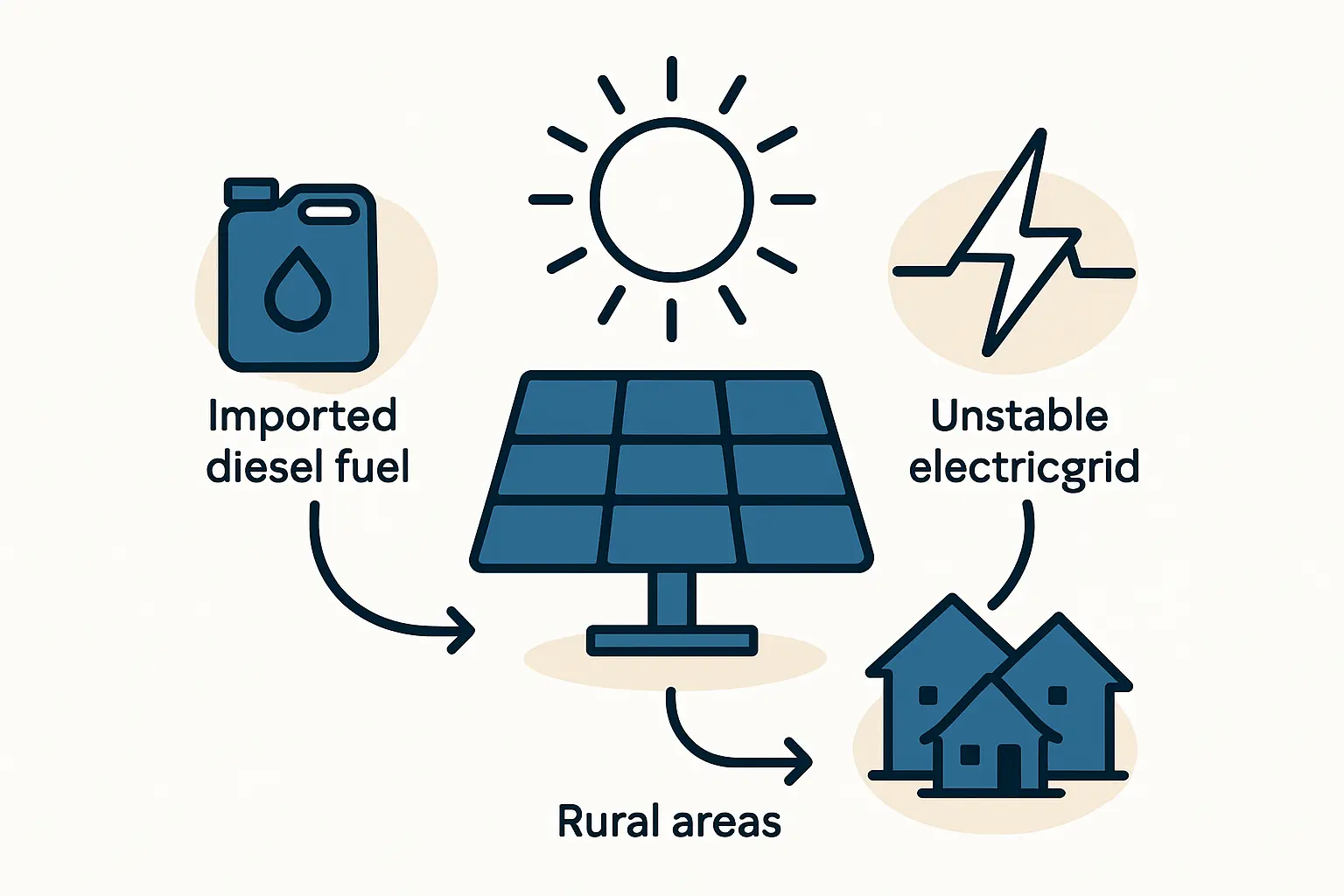
This strategic shift away from centralized, fossil-fuel-based power creates predictable, long-term demand for solar panels. A local manufacturer can become a pivotal player in this national transition, supplying the essential components that will power the country’s future.
Primary Domestic Markets for Solar Panel Manufacturing
For a new manufacturer, focusing on the most immediate and sustainable sources of demand is critical. In Eritrea, three core sectors stand out as the primary customers for locally produced solar modules.
1. Rural Electrification: Powering Homes and Communities
The largest unmet energy need is in rural areas, where millions of people live without access to electricity. Government agencies, non-governmental organizations (NGOs), and development banks are actively funding programs to address this gap.
-
Solar Home Systems (SHS): These small, standalone systems provide essential power for lighting, mobile phone charging, and small appliances. A local factory can produce smaller, durable, and cost-effective panels specifically designed for these applications, giving it an advantage over standardized imported products.
-
Community Mini-Grids: Schools, health clinics, and community water pumps require larger, more robust power systems. Mini-grids powered by solar are the most viable solution. A local manufacturer can become a preferred supplier for these government-tendered and donor-funded projects, ensuring a steady stream of orders.
Ready to make big Profits?
The solar Industry is Booming
WE HELP NEWCOMERS to the solar industry start their own solar module production line. Customers can make BIG PROFITS by selling modules and finding investors, without wasting money and time on things they don't need!
2. The Agricultural Sector: Enhancing Food Security and Reducing Costs
Agriculture is a vital part of Eritrea’s economy, but its productivity is often limited by a lack of reliable and affordable energy for irrigation. Solar water pumps offer a direct solution to this challenge.
The business case is straightforward: farmers who replace expensive and maintenance-intensive diesel pumps with solar-powered systems can significantly reduce their operational costs, increase crop yields, and improve their profitability. A local manufacturer can supply the robust panels needed for these systems, which must withstand harsh outdoor conditions. This market extends beyond pumping to include power for post-harvest processing, cooling, and other value-adding activities on the farm.

3. Telecommunications Infrastructure: Ensuring Reliable Connectivity
The expansion of mobile and internet networks into remote areas is essential for economic growth. However, telecom towers located far from the national grid require their own independent power sources.
Historically, these towers have been powered by diesel generators, which are costly to run, require frequent refueling in difficult-to-access locations, and are prone to failure. Telecommunication companies are increasingly turning to solar-plus-battery storage solutions for their off-grid towers. This switch provides a reliable, low-maintenance power supply with minimal operational expenses. For a local module manufacturer, the telecom sector is a high-value B2B customer with clear technical specifications and a long-term demand for high-performance solar panels.

Strategic Advantages of Local Solar Panel Production in Eritrea
Manufacturing solar modules in Eritrea offers distinct advantages over simply importing finished panels. A local facility can better serve the specific needs of the domestic market.
-
Customization: The ability to produce modules of various sizes and specifications for SHS, water pumps, or telecom applications provides a significant competitive advantage.
-
Cost and Logistics: Manufacturing locally can reduce shipping costs, avoid import tariffs on finished goods, and shorten delivery times, making projects more financially viable.
-
National Alignment: A local factory contributes to national goals by creating jobs, facilitating technology transfer, and strengthening the domestic supply chain. This alignment can lead to preferential treatment in government tenders and projects.
-
Service and Support: Offering local technical support and warranties builds trust and provides a level of service that foreign suppliers cannot match.
Establishing a turnkey solar production line allows an entrepreneur to begin production efficiently, with processes configured to meet the demands of these key markets from day one. While the investment required for such an undertaking is considerable, the focused nature of the Eritrean market allows for a phased approach, starting with a 20-50 MW capacity line tailored to the most immediate customer needs.
Frequently Asked Questions (FAQ)
What size solar factory is suitable for the Eritrean market?
Based on experience in similar emerging markets, starting with a smaller, flexible production line of 20–50 MW annual capacity is often the most prudent approach. This allows the business to adapt to the specific module types demanded by the initial customer base without over-investing in capacity.
Do I need a technical background to start this business?
No, a technical background is not a prerequisite. Strong business management, strategic planning, and financial acumen are the most critical skills. Technical expertise can be brought in through experienced partners and consultants, such as those at J.v.G. Technology, who specialize in guiding non-experts through the process.
What are the main challenges for a new manufacturer in this context?
Common initial challenges include establishing reliable supply chains for raw materials, providing comprehensive training for the local workforce, and building a reputation for quality and reliability with the first anchor customers (e.g., government agencies or telecom companies).
For this market, is it better to import panels or manufacture them locally?
Importing can be a short-term solution, but local manufacturing offers superior long-term strategic advantages. These include greater control over product specifications, insulation from global supply chain volatility, reduced logistical costs, and stronger alignment with national industrial development policies.
Conclusion: Your Next Steps in Exploring the Eritrean Solar Market
The Eritrean solar market presents a focused and tangible opportunity for entrepreneurs. The demand is not speculative; it is rooted in the fundamental needs of the nation for rural electrification, agricultural productivity, and modern telecommunications. A local solar module manufacturer would be positioned to become a critical partner in meeting these needs, building a profitable business while contributing directly to the country’s economic development.
Ready to explore this opportunity further? The next logical step is to deepen your understanding of the production process itself. Investigating different types of solar panel technology and their suitability for Eritrea’s climate and market will provide a detailed foundation for a comprehensive business plan.

